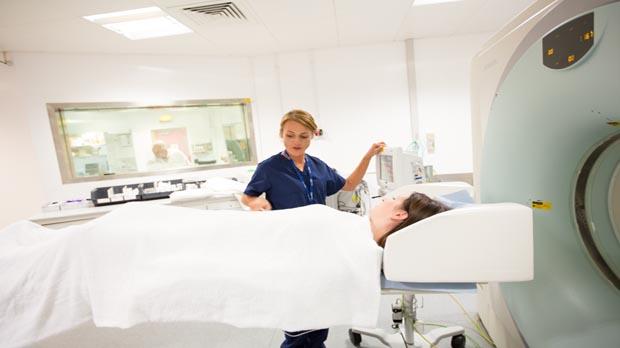
Last year in the UK over 60,000 cancer patients enrolled on clinical trials aimed at improving cancer treatments and making them available to all.
Please note - this trial is no longer recruiting patients. We hope to add results when they are available.
This study is to see if testing for the MCM5 protein could help diagnose ovarian cancer and womb (endometrial) cancer.
The symptoms of ovarian cancer can be vague. This means this cancer is often diagnosed at an  stage.
stage.
Being diagnosed at an advanced stage can reduce the length of time women live after their treatment. So a test to diagnose ovarian cancer early could help these women live longer.
Most women with womb cancer are diagnosed at an early stage. But some are diagnosed at a more advanced stage. As with ovarian cancer this can make successful treatment more difficult.
The aim of this study is to find out if the MCM5 test can diagnose ovarian and womb cancer at an early stage.
The following bullet points list the entry conditions for this study. Talk to your doctor or the study team if you are unsure about any of these. They will be able to advise you.
You may be able to join this study if all of the following apply. You
You cannot join this study if any of these apply. You
This is a feasibility study. The researchers need 60 women to join.
Everyone gives a urine sample.
You then either have a vaginal swab taken or you will be given a tampon (with an applicator) to use.
A research nurse takes the vaginal swab in the clinic.
You take the tampon home. A member of the study team will phone to tell you when to put the tampon in. You leave it in for 6 to 8 hours.
You give the tampon to the research nurse at your next clinic appointment.
There are no extra hospital visits
There are no side effects. You might feel a bit of discomfort if you have the vaginal swab done.
Please note: In order to join a trial you will need to discuss it with your doctor, unless otherwise specified.
Professor Richard Edmondson
Arquer Diagnostics Ltd
If you have questions about the trial please contact our cancer information nurses
Freephone 0808 800 4040

Last year in the UK over 60,000 cancer patients enrolled on clinical trials aimed at improving cancer treatments and making them available to all.